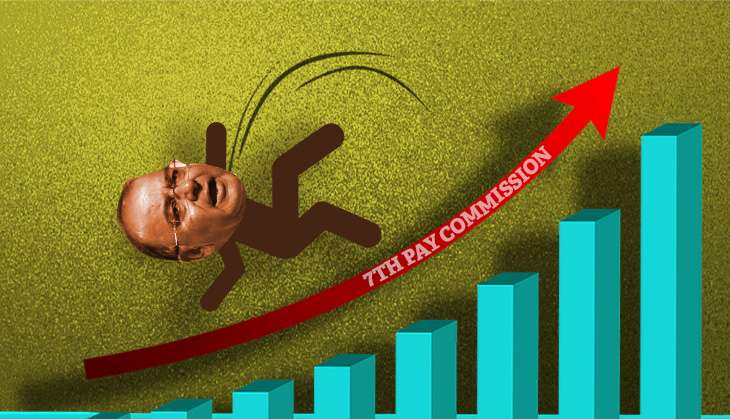Govt may give its staff a 30% salary hike. Can the country afford it?

The Narendra Modi government is likely to give the benefits of the 7th Pay Commission to its employees starting August, with arrears from 1 January 2016.
The commission has recommended a salary hike of 24%, but the government may offer a more generous 30%. So, while the commission has suggested a minimum monthly basic salary of Rs 18,000 and a maximum of Rs 2,50,000, a 30% hike would take it to Rs 23,500 and Rs 3,25,000, respectively.
Also read -
Pay Commission windfall: peon to get Rs 18,000 a month, cabinet secretary Rs 2.5 lakh
Can the government afford the hike?
A 24% hike is estimated to cost the exchequer an additional 1.02 lakh crore every year. If the hike is 30%, the country will have to shell out an extra Rs 1.29 lakh crore per year.
The 2016-17 budget has allocated about Rs 70,000 crore to pay for salary revisions under the 7th Pay Commission.
The government, however, is yet to find a revenue source to implement the recommendations fully. If there's a good monsoon, as has been predicted by the Met, the government may not face any significant problems in paying the revised wages as revenue from industries dependent on the rural economy is set to increase. In fact, in such a scenario, payment of higher salaries and arrears would significantly increase the spending power of nearly 47 lakh government employees, which in turn would give a fillip to the economy.
The state governments though may not be in an ideal position to revise the wages given that the Centre is looking to implement the Goods and Services Tax from April 2017. The GST will, at least initially, reduce tax revenue for states, making it difficult for them to find money to hike the wages.
How it it affect the economy?
As for the industry is concerned, hike in the salaries of the government employees means good business for automobile and consumer durables companies.
Maruti Suzuki, the country's largest carmaker, sold 16% of over 1.3 million vehicles in 2015-16 to government employees. The company is reportedly banking on a 24% salary hike to increase sales to government employees to 18% of overall sales. In case the hike is 30%, it would be a bonanza for the company.
Not just the automobile industry, even the currently depressed real estate sector would make merry if there is a 30% hike.
In 2015, about 4% fewer homes were bought in India's eight biggest cities. By the end of the year, these cities were left with nearly seven lakh unsold homes - an inventory backlog that would take at least two to three years to clear, and that's assuming no new homes are built. However, putting more money in the pockets of government employees would significantly fasten the clear-out.
What about the inflationary pressure?
Having more cash to spend risks jacking up inflation rates. Already, higher fuel and food prices have sparked fears about the return of the high-inflation days of the recent past. The situation isn't alarming at the moment, but if fuel prices rise to $50 per barrel by August-September, expenditure by the newly cash-flush government employees could force the Reserve Bank to put off interest rate cuts till the end of the year.
Clearly, the government has much to think about before going through with the hike.
More in Catch - A plentiful monsoon: Facts and figures while India waits
Auto industry growth a sign of economic rebound. But is it a false dawn?
First published: 17 June 2016, 11:12 IST






![BJP's Kapil Mishra recreates Shankar Mahadevan’s ‘Breathless’ song to highlight Delhi pollution [WATCH] BJP's Kapil Mishra recreates Shankar Mahadevan’s ‘Breathless’ song to highlight Delhi pollution [WATCH]](https://images.catchnews.com/upload/2022/11/03/kapil-mishra_240884_300x172.png)

![Anupam Kher shares pictures of his toned body on 67th birthday [MUST SEE] Anupam Kher shares pictures of his toned body on 67th birthday [MUST SEE]](https://images.catchnews.com/upload/2022/03/07/Anupam_kher_231145_300x172.jpg)






